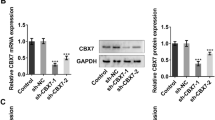Abstract
Experimental evidence indicates that ischemic glycolysis improves myocardial tolerance to low flow ischemia and anoxia, and cellular membrane disruption signals and/or causes transition to irreversible ischemic injury. The objective of this study was to determine the impact of ischemic glycolysis on membrane integrity and myocardial viability during total ischemia. Phosphorus metabolites were measured by 31P NMR spectroscopy and cellular volumes were determined by 1H and 59Co NMR in conjunction with the extracellular marker cobalticyanide. Isolated rat hearts were submitted to 30 min of total ischemia, followed by 30 min of reperfusion. Glycogen contents were modulated by pre-ischemic perfusion with various substrates. Increased glycolytic activities, as determined from lactate production, delayed onset of ischemic contracture (p < 0.05), induced cytosolic acidification (p < 0.005) and cellular swelling during ischemia (p < 0.05), reduced post-ischemic diastolic tone (p < 0.05), improved recovery of high energy phosphates and contraction force (p < 0.005). Inhibition of glycolysis with iodoacetate and glycogen depletion with 2-deoxyglycose resulted in early onset of ischemic contracture (p < 0.005), elevated post-ischemic diastolic pressures (p < 0.05), reduced coronary flow rates and mechanical activities (p < 0.05). Cellular viability was evaluated by creatine kinase efflux, and membrane integrity was determined from cellular swelling during perfusion with hypoosmotic medium. High activities of ischemic glycolysis correlated with improved cellular viability and preserved membrane integrity, while low glycolytic fluxes were associated with membrane permeabilization (p < 0.05). The protective effect of ischemic glycolysis over sarcolemmal integrity was attributed to continuous provision of energy, undetected by 31P NMR spectroscopy. There was no evidence that ischemic swelling caused by glycolytic end-metabolites accumulation had detrimental consequences, and of excessive swelling during reperfusion. It is concluded that one of the cardio-protective mechanisms of ischemic glycolysis is energy-dependent preservation of sarcolemmal integrity and cellular viability.
Similar content being viewed by others
Author information
Authors and Affiliations
Additional information
Received: 3 January 2001, Returned for revision: 25 January 2001, Revision received: 14 February 2001, Accepted: 15 March 2001
Rights and permissions
About this article
Cite this article
Askenasy, N. Glycolysis protects sarcolemmal membrane integrity during total ischemia in the rat heart. Basic Res Cardiol 96, 612–622 (2001). https://doi.org/10.1007/s003950170013
Issue Date:
DOI: https://doi.org/10.1007/s003950170013




